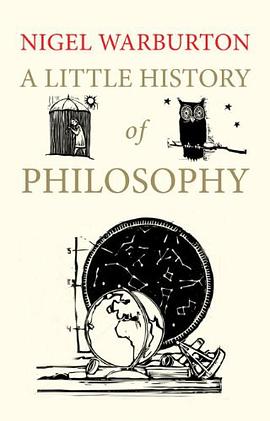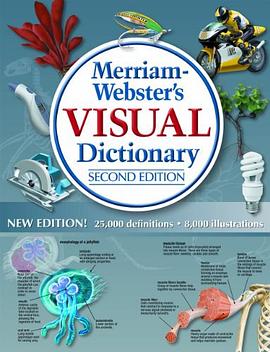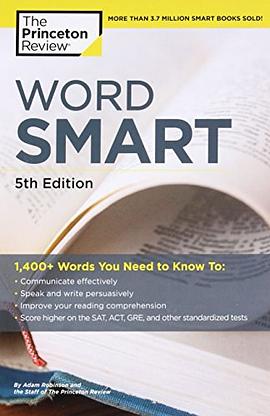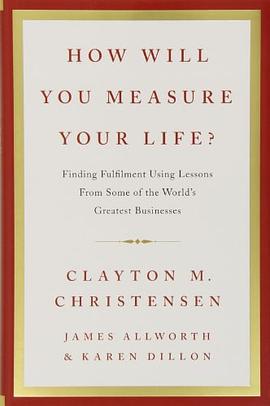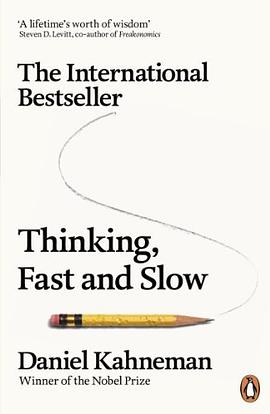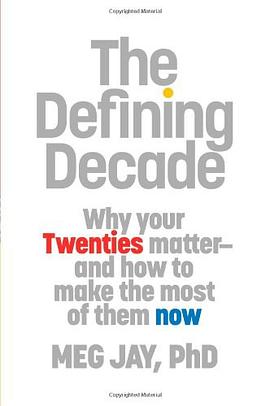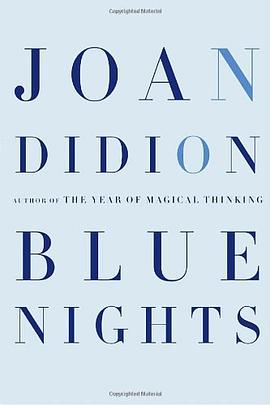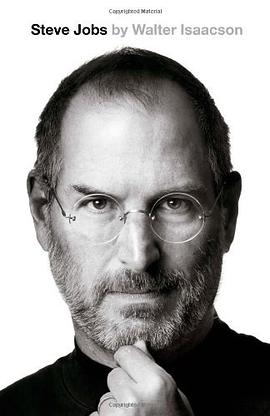

具体描述
“This book is a breakthrough, a lyrical, powerful, science-based narrative that actually shows us how to get better (much better) at the things we care about.”—Seth Godin, author of Linchpin
“Anyone who wants to get better at anything should read [Peak]. Rest assured that the book is not mere theory. Ericsson’s research focuses on the real world, and he explains in detail, with examples, how all of us can apply the principles of great performance in our work or in any other part of our lives.”—Fortune
Anders Ericsson has made a career studying chess champions, violin virtuosos, star athletes, and memory mavens. Peak distills three decades of myth-shattering research into a powerful learning strategy that is fundamentally different from the way people traditionally think about acquiring new abilities. Whether you want to stand out at work, improve your athletic or musical performance, or help your child achieve academic goals, Ericsson’s revolutionary methods will show you how to improve at almost any skill that matters to you.
“The science of excellence can be divided into two eras: before Ericsson and after Ericsson. His groundbreaking work, captured in this brilliantly useful book, provides us with a blueprint for achieving the most important and life-changing work possible: to become a little bit better each day.”—Dan Coyle, author of The Talent Code
“Ericsson’s research has revolutionized how we think about human achievement. If everyone would take the lessons of this book to heart, it could truly change the world.”—Joshua Foer, author of Moonwalking with Einstein
作者简介
K. Anders Ericsson (born 1947) is a Swedish psychologist and Conradi Eminent Scholar and Professor of Psychology at Florida State University who is internationally recognized as a researcher in the psychological nature of expertise and human performance.
Currently, Ericsson studies expert performance in domains such as medicine, music, chess, and sports, focusing exclusively on extended deliberate practice (e.g., high concentration practice beyond one's comfort zone) as a means of how expert performers acquire their superior performance. Critically, Ericsson's program of research serves as a direct complement to other research that addresses cognitive ability, personality, interests, and other factors that help researchers understand and predict deliberate practice and expert performance
目录信息
读后感
作为一个写作者,偶尔我也会有些认命式地认为写作这件事,也是占有相当一部分天赋因素的。每当我读到像张爱玲、汪曾棋、林语堂他们的一些简练、优美的句子的时候,心中不免要赞叹:他们天生就是写作的料啊。 可是很多时候,我总是认为自己并不具备这种才能。偶尔只不过是凭着...
评分 评分 评分 评分PS:最近发起了这本书的共读活动(每月都有,每期一本书)—— 本文是书籍《刻意练习》的书评分享,看完这篇书评,再看一下我分享的书摘和思维导图,你就不用再阅读一次了。 公众号 PomoNote 回复关键词“刻意练习”,可获取本书的书摘和思维导图。 ## 书籍介绍 这本书出版于去...
用户评价
The best book ever written on this topic so far. It disputes the myth of "innate talent" convincingly and elaborates on "deliberate practice" in great depth. Nonetheless what impresses me the most is the grandeur vision authors have on future intellectual development of human race in this ever-evolving society. A most inspiring read!
评分Learn by doing, improve by practicing with planning and feedback.
评分Deliberate practice with clear goals and timely feedback when doing something wrong.单纯重复是不会提高的,走出comfort zone才行。看的时候就在想要把这些教给学生,书里后面就写到了怎样在教学中运用。感觉我还是比较喜欢读博士们写的书,虽然这本比较啰嗦,却可以实现英文速读了。
评分Gretchen Menn 老师推荐阅读的三本书之一
评分Deliberate practice with clear goals and timely feedback when doing something wrong.单纯重复是不会提高的,走出comfort zone才行。看的时候就在想要把这些教给学生,书里后面就写到了怎样在教学中运用。感觉我还是比较喜欢读博士们写的书,虽然这本比较啰嗦,却可以实现英文速读了。
相关图书
本站所有内容均为互联网搜索引擎提供的公开搜索信息,本站不存储任何数据与内容,任何内容与数据均与本站无关,如有需要请联系相关搜索引擎包括但不限于百度,google,bing,sogou 等
© 2025 book.quotespace.org All Rights Reserved. 小美书屋 版权所有


